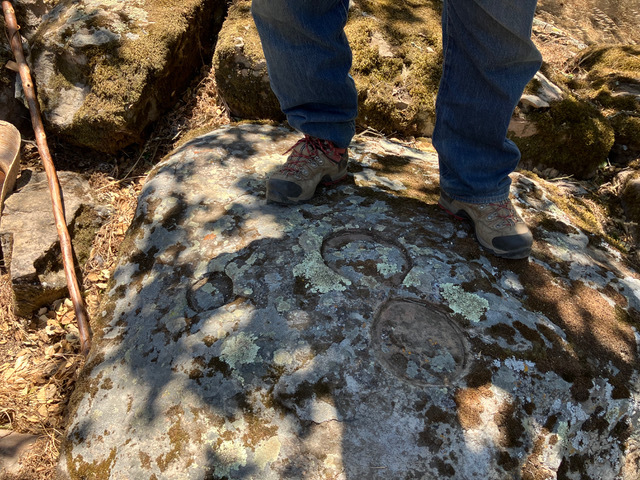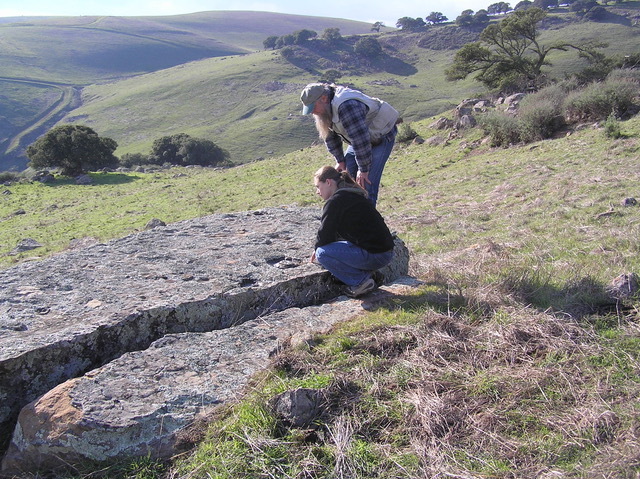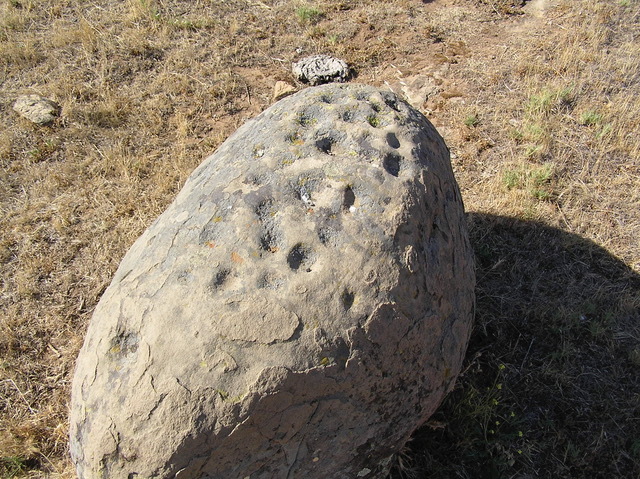Pecked, curvilinear, nucleated rock art elements (PCNs) and cupules
If you can understand that PCN art represents perhaps thousands of years of significant importance to the people who lived here then you will realize that what made them important then remains, making them important now.
Not just relics or epiphenomena of the pre-historic past, the marked boulders are representations of meaningful social and cultural practices or rituals.
Even today, they are material manifestations that evoke history, memory and meanings.
The basic elements of PCNs are circles and ovals, which have nuclei that appear raised.
They seldom occur in any discernible pattern. The elements are pecked into the surface of the rock.
PCNs, are not isolated objects on the landscape, but rather manifestations of activities that have taken place, and, as such, have become part of the landscape. They have a story to tell.
Thank you Donna Gillette.
Recently discovered by a pair of our adventurers on Brushy Peak, this rock sits in a charmed location near the top.


This beauty sits on a slab overlooking the valley below.


This amazing cupule rock sits by itself on the First Terrace.
These cupules are made intentionally, and possess some non-utilitarian or symbolic function and have been pounded into a rock surface by a human hand.


True cupules have occurred from the earliest tool making cultures. Indeed, the oldest art on every populated continent consists of linear grooves and cupules.
No paleo-expert has yet produced a convincing explanation of the cultural or artistic meaning of cupules.
Most associate cupules with fertility rites.
Consider them as the surviving traces of specific behavior patterns.
In some form or fashion, they represent an endeavor of penetrating into rock in a very specific way.

